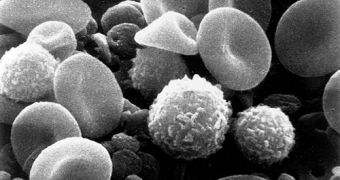New scientific research, conducted on the model organism Drosophila melanogaster, offers proof of the fact that the immune system works at full capacity at night, when the body is asleep. The reason for this is pretty simple – there are less “power” requests from other bodily functions, such as metabolism and movement. This allows the defense system to increase the intensity of phagocytosis, an innate process that is involved in clearing bacterial infections.
The team, based at Standford University, found that circadian cycles were also tightly linked to the way the immune system worked. "These results suggest that immunity is stronger at night, consistent with the hypothesis that circadian proteins upregulate restorative functions such as specific immune responses during sleep, when animals are not engaged in metabolically costly activities," says Mimi Shirasu-Hiza, a scientist at the University.
The research, made public at the 48th Annual Meeting of the American Society for Cell Biology (ASCB), which is held Dec. 13-17, 2008 in San Francisco, also says that phagocytosis is involved in an increasing number of human medical conditions, including cancers, and that future therapies should take the new discoveries into account.
A further interesting aspect of the results of the study was the fact that the severity of the infections they incurred on D. melanogaster was directly proportional to the time of day when the pathogens entered the bodies of the fruit flies. Those infected with Listeria monocytogenes or Streptococcus pneumoniae at night had a much higher rate of pulling through, whereas those subjected to the pathogens during the day died immediately, or only survived for a short period of time.
This can only mean that circadian proteins regulate immunity, the researchers conclude. These finds could bring a new meaning to parental advice and could prompt at least some people to become more responsible of the way they sleep and spend their night. The immune system will try to cope the best it can, but there's only so much it can do if people don't help. Consider those recovering from trauma – they spend all of their days sleeping, so as to allow their bodies to fully recover.

 14 DAY TRIAL //
14 DAY TRIAL //